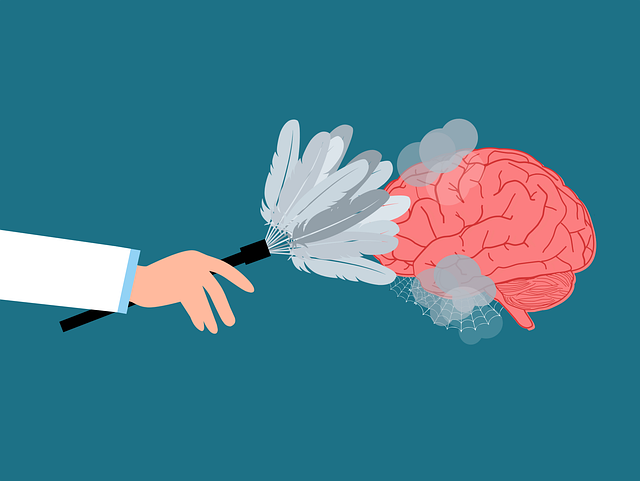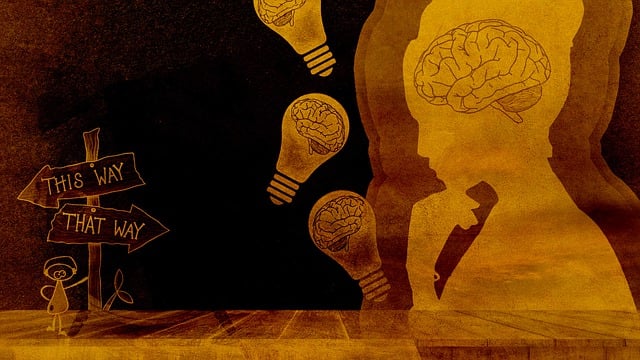Mental health professionals face unique challenges treating adolescents with neuro disorders, such as ADHD, autism, or traumatic brain injuries, due to their vulnerable psychological states and emerging identities. Effective risk management in these cases requires creating safe environments, employing evidence-based practices like compassion cultivation, integrating stress management techniques, and leveraging resources from the Mental Wellness Podcast Series. Comprehensive risk assessment tools, staff training, public awareness campaigns, and inner strength development through therapy are crucial for successful outcomes. Recent studies show that specific mitigation techniques enhance resilience and improve therapeutic results for both professionals and adolescent clients with neuro disorders.
Mental health professionals face unique challenges when supporting adolescent clients, particularly those with neuro disorders. This article explores comprehensive risk management planning as a vital tool for ensuring safe and effective therapy. We delve into the distinct risks associated with adolescent therapy, from neurological challenges to environmental factors. Learn about strategic approaches, real-world case studies, and best practices for implementing robust risk mitigation techniques tailored to this vulnerable population, ensuring positive outcomes for both therapists and teens.
- Understanding the Unique Risks in Adolescent Therapy
- Identifying Potential Neurological Challenges and Their Impact
- Strategies for Effective Risk Management Planning
- Case Studies: Successful Implementation of Risk Mitigation Techniques
Understanding the Unique Risks in Adolescent Therapy

Adolescent therapy presents a unique set of risks that mental health professionals must address through comprehensive risk management planning. This age group often faces complex challenges, including neurodevelopmental issues and emerging identities, which can make them vulnerable to various psychological risks. For example, teens with neuro disorders such as anxiety or depression may struggle with self-regulation and emotional understanding, requiring tailored therapeutic approaches.
Mental health professionals must be adept at fostering a safe, non-judgmental environment while implementing evidence-based practices like compassion cultivation. Effective risk management involves integrating stress management techniques into therapy sessions to support these vulnerable individuals. The Mental Wellness Podcast Series Production can also play a role by providing additional resources and sharing strategies for navigating the unique demands of adolescent therapy, ultimately enhancing the professional’s ability to deliver quality care.
Identifying Potential Neurological Challenges and Their Impact

Mental health professionals often encounter clients with complex backgrounds and unique challenges. Among these, neurological disorders in adolescent teens present a significant risk and require careful consideration during risk management planning. Neurological challenges can manifest in various forms, from attention-deficit/hyperactivity disorder (ADHD) to more severe conditions like autism spectrum disorder or traumatic brain injuries. These disorders impact not just cognitive functions but also emotional regulation and social interactions, which are essential aspects of therapy for adolescent teens.
Identifying potential neurological challenges early on is crucial as it enables professionals to tailor their approach and provide appropriate support. For instance, a therapist specializing in therapy for adolescent teens with neuro disorders can incorporate strategies from the Mental Wellness Podcast Series Production to enhance engagement. Trauma Support Services may be necessary for clients who have experienced cerebral injuries or are dealing with anxiety relief related to neurological conditions. Effective risk management ensures that these individuals receive holistic care, fostering their mental wellness and overall development.
Strategies for Effective Risk Management Planning

Effective risk management planning for mental health professionals involves a multifaceted approach tailored to address unique challenges within their practice, particularly when catering to adolescents with neuro disorders. Strategies should encompass comprehensive risk assessment tools that consider not only individual patient factors but also environmental influences. Regular staff training on risk identification and management is crucial, ensuring practitioners are equipped to recognize early warning signs and implement appropriate interventions promptly.
Beyond clinical protocols, fostering inner strength development through therapeutic techniques can empower both patients and professionals in navigating crises. Public awareness campaigns and community outreach program implementation play a significant role by educating the broader public about mental health issues, reducing stigma, and encouraging early intervention. Such initiatives contribute to creating supportive environments where adolescents with neuro disorders feel understood and empowered to seek therapy for adolescent teens.
Case Studies: Successful Implementation of Risk Mitigation Techniques

In recent years, case studies have demonstrated the successful implementation of risk mitigation techniques tailored to the unique needs of mental health professionals, particularly those treating adolescent teens with neuro disorders. These strategies have proven invaluable in enhancing resilience and fostering a culture of safety within clinical settings. For instance, one study highlights a therapy program focused on stress reduction methods, specifically tailored for teens grappling with anxiety and depression. By incorporating mindfulness practices and cognitive-behavioral techniques, the program not only improved symptoms but also boosted the confidence of both therapists and patients.
Another compelling case centers around a mental health awareness initiative aimed at addressing the specific challenges faced by professionals dealing with complex neurodevelopmental conditions. Through workshops and peer support networks, practitioners learned effective strategies for self-care and emotional regulation. This approach not only mitigated burnout but also improved the quality of therapy delivered to adolescent clients, showcasing the profound impact of tailored risk management planning in transforming therapeutic outcomes.
Mental health professionals play a vital role in supporting adolescent teens, particularly those dealing with neuro disorders. By understanding and proactively managing risks, therapists can create a safe and effective therapeutic environment. This article has explored unique risks in adolescent therapy, from neurological challenges to the complexities of teen development. It has also highlighted the importance of comprehensive risk management planning, offering strategies to identify and mitigate potential issues. Through real-world case studies, we’ve seen successful implementations of techniques that enhance patient safety and foster positive outcomes for young individuals navigating neuro disorders. By adopting these practices, mental health professionals can ensure they are equipped to handle risks effectively and provide the best possible care.








